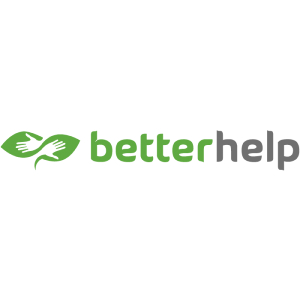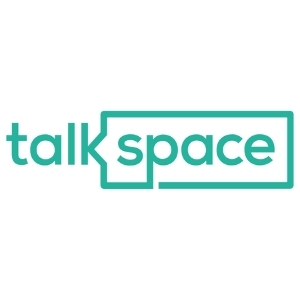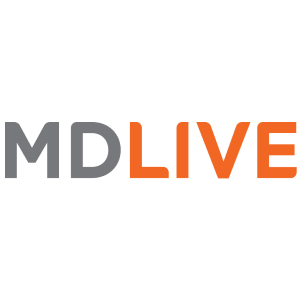7 Best Online Help Resources For Depression [2024 Updates]
All articles are produced independently. When you click our links for purchasing products, we earn an affiliate commission. Learn more about how we earn revenue by reading our advertise disclaimer.

BetterHelp
- Over 20,000 licensed therapists
- Sessions can start within 24 hours of signing up
- Asynchronous messaging
20% Off First Month: healthcanal

Calmerry
- Monthly subscription service
- Message your therapist whenever
- Provides personal treatment plans
40% Off Coupon: HEALTHCANAL

Talkspace
- Provides individual, couples, and teen therapy
- Therapists are fully licensed
- Accepts insurance
$85 off your first month: HEALTHCANAL85
In January 2020, WHO (World Health Organization)[1] communicated that depression is a common mental disorder, with 264 million worldwide suffering from it. A significant factor in the overall burden of disease worldwide, depression is the leading cause of disability globally.
Depression can be a severe health condition when it is moderate to severe in intensity and is long-lasting, causing those who suffer from it to function poorly at school or work. At worst, depression can lead to suicide, with close to 800,000 people dying from it every year.
Fortunately, some treatments are effective in managing depression, including online depression help. Online therapy for depression is currently in its infancy, but the Internet has great potential to help physicians support patients suffering from depression.
Best Online Help Resources For Depression In (April. 2024)
- BetterHelp – Editor’s Choice
- Calmerry – Best Subscription Plan
- Talkspace – Best Full-Service
- Online-Therapy.com – Good For PTSD
- MDLive – 24-Hour Support
- 7 Cups – Free Options
- Faithful Counseling– Christian-Based
Why Should I Use Online Counseling?
Physicians have used Internet-based psychotherapy as a tool to help their patients. Therapy could be in the form of Internet-based therapy sites[2], interactive response programs through the phone, or programs on stand-alone computers.
With so many people having access to the World Wide Web, it’s pretty easy to search for medical information, screen for health problems, and perform other self-help approaches. The information is also always available to read and absorb at the user’s own pace and refers to it repeatedly when needed.
The high cost of physician consultations also makes the Internet the more cost-efficient source of health and medical information. It also covers the person in a shroud of discretion when searching for information on and treating stigmatized diseases, such as depression. People are more willing to disclose added information about themselves to a computer versus a therapist.
7 Best Online Resources For Depression In 2024
BetterHelp

20% Off First Month: healthcanal
BetterHelp’s goal is to provide affordable counseling for everyone. They have therapists specializing in depression, stress, anxiety, self-esteem, and other issues.
- Message your therapist anytime
- The mobile app is easy to use
- Response time varies depending on your therapist
- It does not accept insurance
BetterHelp has the most therapists to choose from, with 20,000 licensed professionals. You and your counselor have a chatroom available anytime, and each plan comes with the option to message your therapist anytime. You get an email notification once your therapist has responded. If you want a live chat, phone, or video session, you have to schedule one with your counselor.
All of BetterHelp’s counselors are licensed, trained, and accredited at the state level. They have Master’s or Doctorate degrees and have a minimum of three years and 1,000 hours of hands-on experience.
Calmerry

40% Off Coupon: HEALTHCANAL
Calmerry will match you with a counselor that will help you work through painful emotions and problems to give you a more fulfilling life.
- It has a weekly introductory package
- Therapists are very responsive to messages
- No prescription medicine service
- It does not accept insurance
One of the newer online therapy platforms, Calmerry, has a network of therapists in the United States. Their weekly and monthly subscription services provide you with access to their licensed therapists. You can access their service through a mobile app or web platform.
You can message your therapist anytime with a guaranteed response within the day. You can also book half-hour video sessions with them each month. Calmerry’s therapists have 2,500 hours of clinical experience and have all been background-checked before joining.
Calmerry also has personal treatment plans with short and long-term goals that you work on with your therapist.
Talkspace

$85 off your first month: HEALTHCANAL85
Talkspace aims to provide more people with convenient access to licensed therapists. Their goal is to make therapy available and affordable for everybody including teens and couples.
- Easy-to-use interface
- You can switch between desktop and mobile anytime
- Chat messages have differing response times based on each therapist
- Not ideal for those who do not prefer to communicate over text
Talkspace has more than 3,000 licensed therapists specializing in various mental health issues. You get matched with one therapist, and you can do consultations via a mobile app or desktop platform. You can contact your therapist through text, video, or audio messages. Depending on your plan, you can have live half-hour sessions with your therapist every month.
Talkspace also provides a prescription management service for an additional fee. The service is conducted by a psychiatrist and is separate from therapy.
Online-Therapy.com

20% Off Coupon: healthcanal
Online-Therapy.com has an online course designed to help you reduce depression, and a therapist will respond within 24 hours to provide feedback on the worksheets you complete for the course.
- Easy sign-up process
- Provides text, audio, and video options for their courses
- The site can be more complicated to use than others
- It does not have a mobile app available
Courses are available through video, audio, or text and are rooted in cognitive behavior therapy with the aim to replace your negative thinking patterns with healthier ways of thinking. The “Happiness Toolbox” has guided meditation and yoga videos, an activity plan, and a journal designed to help you boost your mood.
There is also an online course that aims to help you reduce your depression. You will have worksheets that you need to complete throughout the course. Within 24 hours, Monday to Friday, you can receive feedback from a therapist on the work you did. You also have the choice to chat online with a therapist if you sign up for one of their plans.
Online-Therapy.com also holds courses addressing issues that are related to depression, such as stress, anger, weight issues, anxiety, social anxiety, addiction, and insomnia.
MDLive
MDLive has licensed therapists and board-certified doctors that can provide you with fast and hassle-free healthcare. It accepts insurance, and sessions are held through phone, video, or mobile apps.
- It provides chat and video options
- It has an appointment scheduler that is easy to use
- Sessions cost about the same as an in-office therapist
- There is no mention of how they evaluate their therapists
MDLive provides access to both psychiatrists and therapists. You can search for therapists by their specialties, the type of insurance they accept, and their location.
You can meet with your counselor through phone, video, or mobile app. Their therapists perform five to fifteen sessions each month. There is also a call center that provides 24-hour support.
7 Cups
Seven Cups connects you to listeners for free emotional support. This service is excellent if you need someone to talk to.
- Less expensive than the other services
- The mobile app is easy to use
- There is no audio or video option available
- Not very many licensed therapists are available
Seven Cups started as a free service which led to its massive growth in such a short period. It is only the service that has a “social network” feel to it. Like other services, they also have licensed professionals, but at the same time, they have a community of “listeners” who want to help people live their best lives.
When you sign up, you can opt to speak to a “listener,” which is free, or a licensed professional, which is paid. With the paid session, you can sign up for a three-day trial which you can cancel anytime.
Faithful Counseling
Faithful Counseling connects you with a licensed therapist that is also a Christian. You can access their service through the phone, video, or text.
- It provides counseling from a Christian point of view
- All therapists are licensed
- The service does not offer traditional pastoral counseling
- Response time to the chat varies depending on your counselor
Faithful Counseling’s licensed therapists have a Christian background. They combine their expertise in mental health with their knowledge of Christianity. All their therapists have at least three years and 2,000 hours of hands-on experience. They are also all licensed and certified at the state level.
After filling out a questionnaire about the issues you’re going through and your religious beliefs, the service will match you with a counselor within 48 hours. Sessions are held by phone or video. There are also chats through your mobile phone, tablet, or computer. Responses to the chat don’t occur in real-time, however, but you will receive an email letting you know once your counselor has responded.
How To Choose The Best Online Depression Help?
COVID-19 has caused a rise in mental health symptoms[3]. According to the CDC, in June 2020, 40 percent of US adults reported they have struggled with mental health symptoms, a significant increase from the same period in 2019. But quarantines and social distancing have made seeing a therapist face-to-face challenging, and the best option for many is to seek help online.
Before deciding which online resource is best to help you with depression, determine first if getting this method is best for you. Ask yourself if you need help with depression.
Depression Symptoms
While the symptoms may be different for each person, these are the most common symptoms:
- Suicidal thoughts
- Thoughts of self-harm
- Anxiousness
- Hopelessness
- Sadness
- Helplessness
- Guilt
- Tiredness or having little energy
- Restlessness
- Loss of happiness and interest in things you used to enjoy
- Digestive issues, bodily aches, and pains that have no physical cause and don’t go away
- Speaking or moving slower than usual
- Difficulty concentrating or making decisions
- Sleeping too much or having trouble sleeping
- Weight changes and a change in appetite
Help Is Available
Online therapy for depression is not for those who are technophobes or have literacy issues. You would also need to have access to the Internet and a computer, tablet, or smartphone.
When looking for help for depression online, it is essential that the information provided on the website is updated and of high quality. Several tools assess the quality of health information provided on a website, such as the Automated Quality Assessment (AQA) procedure, DISCERN, HealthInsite, and HONCode.
Still, there is no clear-cut standard and consensus as to what is considered high-quality information. It is also important to note that while many sites provide information, not many diagnose or prescribe medication.
When assessing websites for help with your depression, consider the following:
- The wide range of their therapists’ expertise
- All their therapists are licensed
- The services they provide accept insurance
- The site has positive user feedback
- They have flexible payment options
Why Getting Help Matters
Depression is a debilitating illness for those that experience it. Many who suffer from depression find it difficult to seek help, but the sooner you seek help, the sooner you can recover. Without treatment, it is unlikely to go away on its own. Untreated depression can go on for months and years, leaving many adverse effects on a person.
People who suffer from depression may at times experience[4] mental pain and physical pain, such as disrupted sleep, sore muscles, poor digestion, and joint pains. And the pain from depression may mask other health problems you may have. Some people shrug off physical symptoms they may feel, thinking it’s because of their depression, then discovering that the sign was from another disease. Treating your depression eliminates one reason for the physical pain you may be feeling, and doctors can run further diagnostic tests to find what ails you.
Therapy for your depression can help change your way of thinking and improve your coping skills, so you’re able to deal with any conflicts or stress you experience going through life. Therapy can also identify and change unhelpful ways of thinking and behavior.
There is a wealth of information available on the Internet about depression, but as mentioned earlier, not all provide diagnoses or prescriptions for medication. Here are seven depression resources online we recommend that could help you if you’re seeking support.
Frequently Asked Questions
Many studies have been conducted recently, and there have also been reviews of several previous studies. The consensus has been that online cognitive behavioral therapy is as effective as face-to-face sessions with your therapist.
There are many benefits of online therapy – the first one being its convenience. Since you don’t need to travel to see your therapist, you also save time. Even scheduling appointments with your therapist is more convenient since communicating with them is available 24 hours a day. The other benefit is safety. With the pandemic, it is safer for you to stay at home and meet your therapist online than go out in public. Another advantage is online therapy is less costly than face-to-face sessions.
Some may feel that online therapy is more impersonal than meeting your therapist face-to-face. Also, your therapist will not be able to read your body language as well over a video call as in person.
+ 4 sources
Health Canal avoids using tertiary references. We have strict sourcing guidelines and rely on peer-reviewed studies, academic researches from medical associations and institutions. To ensure the accuracy of articles in Health Canal, you can read more about the editorial process here
- World Health Organization: WHO (2020). Depression. [online] Who.int. Available at: https://www.who.int/news-room/fact-sheets/detail/depression.
- Wade, A.G. (2010). Use of the Internet to Assist in the Treatment of Depression and Anxiety. The Primary Care Companion to The Journal of Clinical Psychiatry. [online] Available at: https://www.psychiatrist.com/pcc/anxiety/anxiolytics/internet-assist-treatment-depression-anxiety-systematic/.
- Czeisler, M.É., Lane, R.I., Petrosky, E., Wiley, J.F., Christensen, A., Njai, R., Weaver, M.D., Robbins, R., Facer-Childs, E.R., Barger, L.K., Czeisler, C.A., Howard, M.E. and Rajaratnam, S.M.W. (2020). Mental Health, Substance Use, and Suicidal Ideation During the COVID-19 Pandemic — United States, June 24–30, 2020. MMWR. Morbidity and Mortality Weekly Report, [online] 69(32), pp.1049–1057. Available at: https://www.cdc.gov/mmwr/volumes/69/wr/mm6932a1.htm?s_cid=mm6932a1_w.
- Vic.gov.au. (2016). Depression – treatment and management – Better Health Channel. [online] Available at: https://www.betterhealth.vic.gov.au/health/conditionsandtreatments/depression-treatment-and-management.




